 The ATLAS experiment at the LHC has observed the first direct evidence of high energy photon-on-photon scattering. This is a very rare process in which two photons interact and change impulse, energy and direction. The result, published in August on Nature Physics, confirms one of the oldest predictions of quantum electrodynamics (QED), and is the first direct evidence of light interacting with itself at high energy, a phenomenon that is not possible in classical theories of electromagnetism. Physicists obtained the result using data produced in collisions between lead ions. As bunches of lead ions are accelerated, an enormous flux of surrounding photons is generated, which can interact with one another, giving rise to the phenomenon of photon-on-photon scattering. These interactions are known as “ultra-peripheral collisions”. Finding evidence of this rare phenomenon required the development of a new ‘trigger’ for the ATLAS detector. The new trigger’s success in selecting the events demonstrates the power and flexibility of the system, as well as the skill and expertise of the analysts and groups who designed and developed it.
The ATLAS experiment at the LHC has observed the first direct evidence of high energy photon-on-photon scattering. This is a very rare process in which two photons interact and change impulse, energy and direction. The result, published in August on Nature Physics, confirms one of the oldest predictions of quantum electrodynamics (QED), and is the first direct evidence of light interacting with itself at high energy, a phenomenon that is not possible in classical theories of electromagnetism. Physicists obtained the result using data produced in collisions between lead ions. As bunches of lead ions are accelerated, an enormous flux of surrounding photons is generated, which can interact with one another, giving rise to the phenomenon of photon-on-photon scattering. These interactions are known as “ultra-peripheral collisions”. Finding evidence of this rare phenomenon required the development of a new ‘trigger’ for the ATLAS detector. The new trigger’s success in selecting the events demonstrates the power and flexibility of the system, as well as the skill and expertise of the analysts and groups who designed and developed it.
You might also be interested in
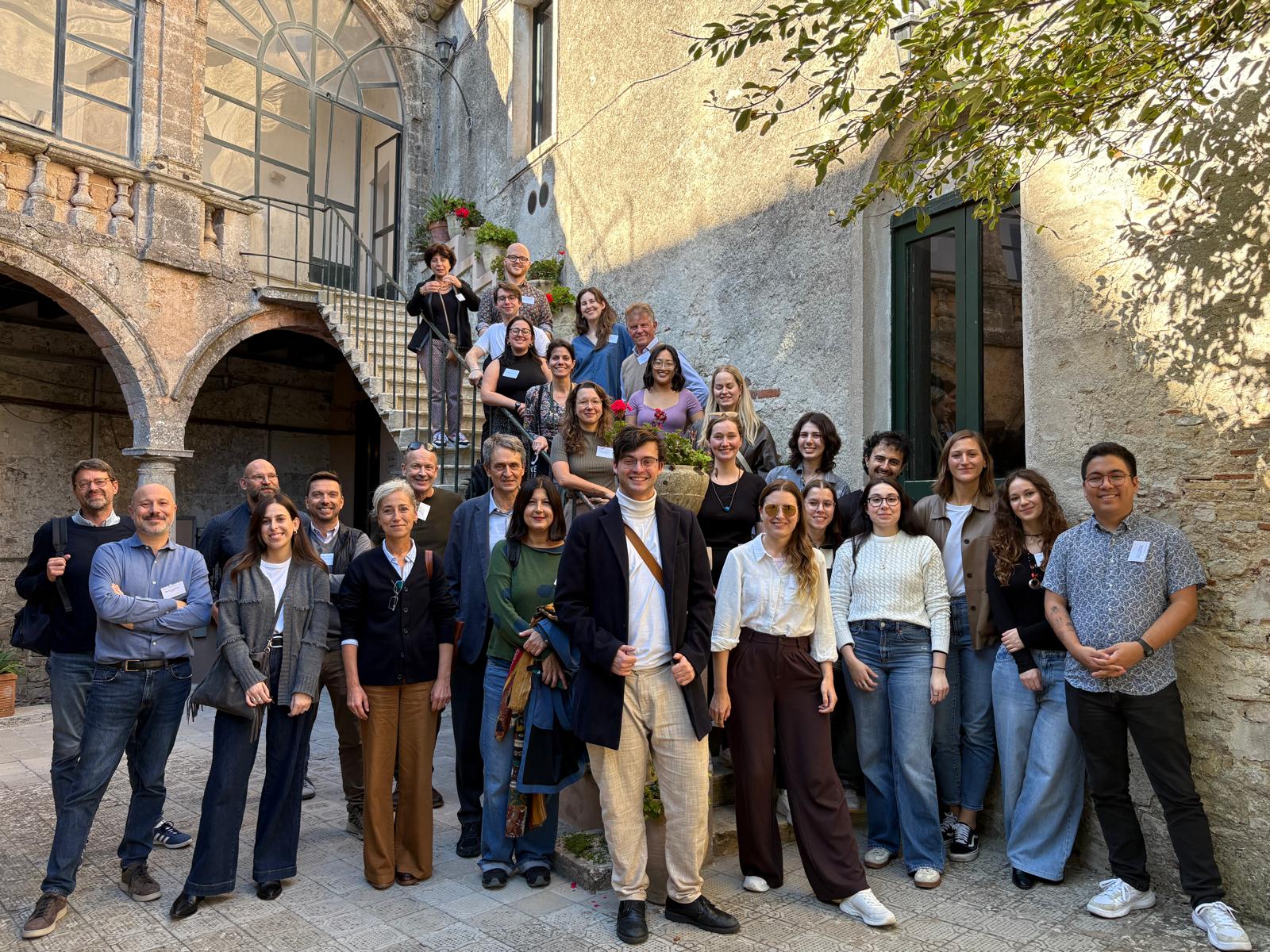
ORIGINS. Exploring Science Communication and Journalism
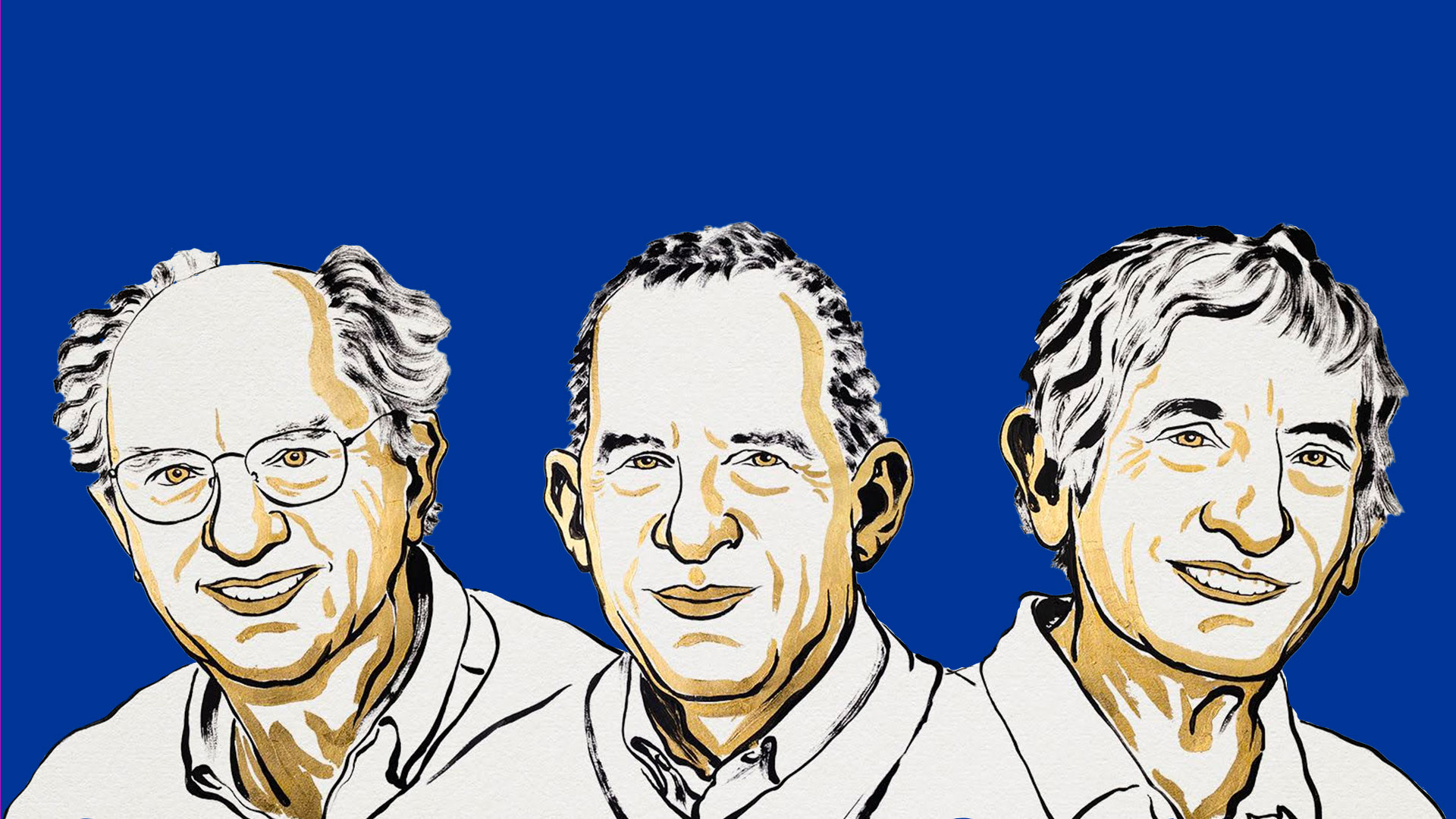
Nobel Prize in Physics 2025: congratulations to John Clarke, Michel H. Devoret and John M. Martinis

INFN statement in support of peace in Gaza and commitment to scientific diplomacy
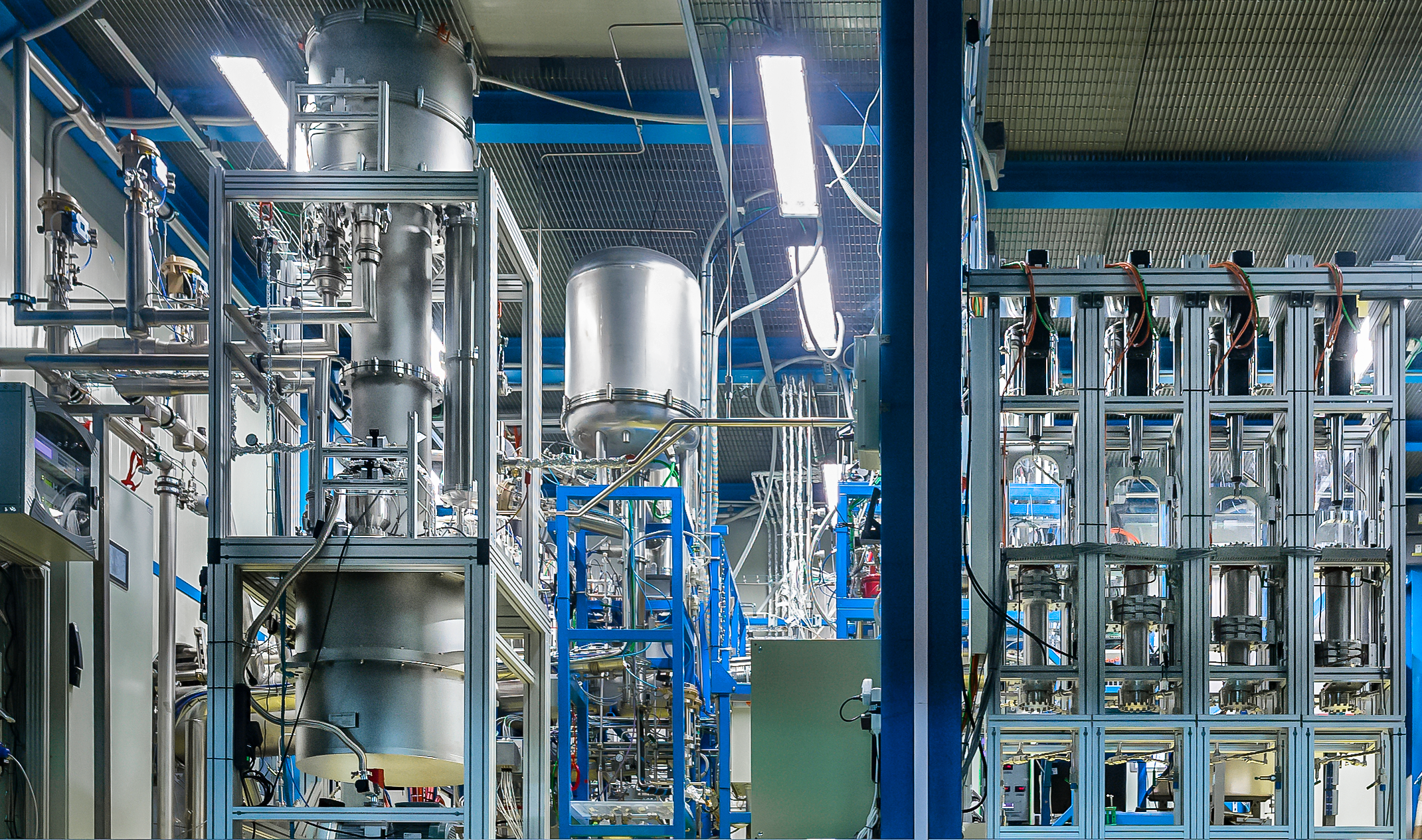
XENONnT: record levels of purity achieved in the search for dark matter
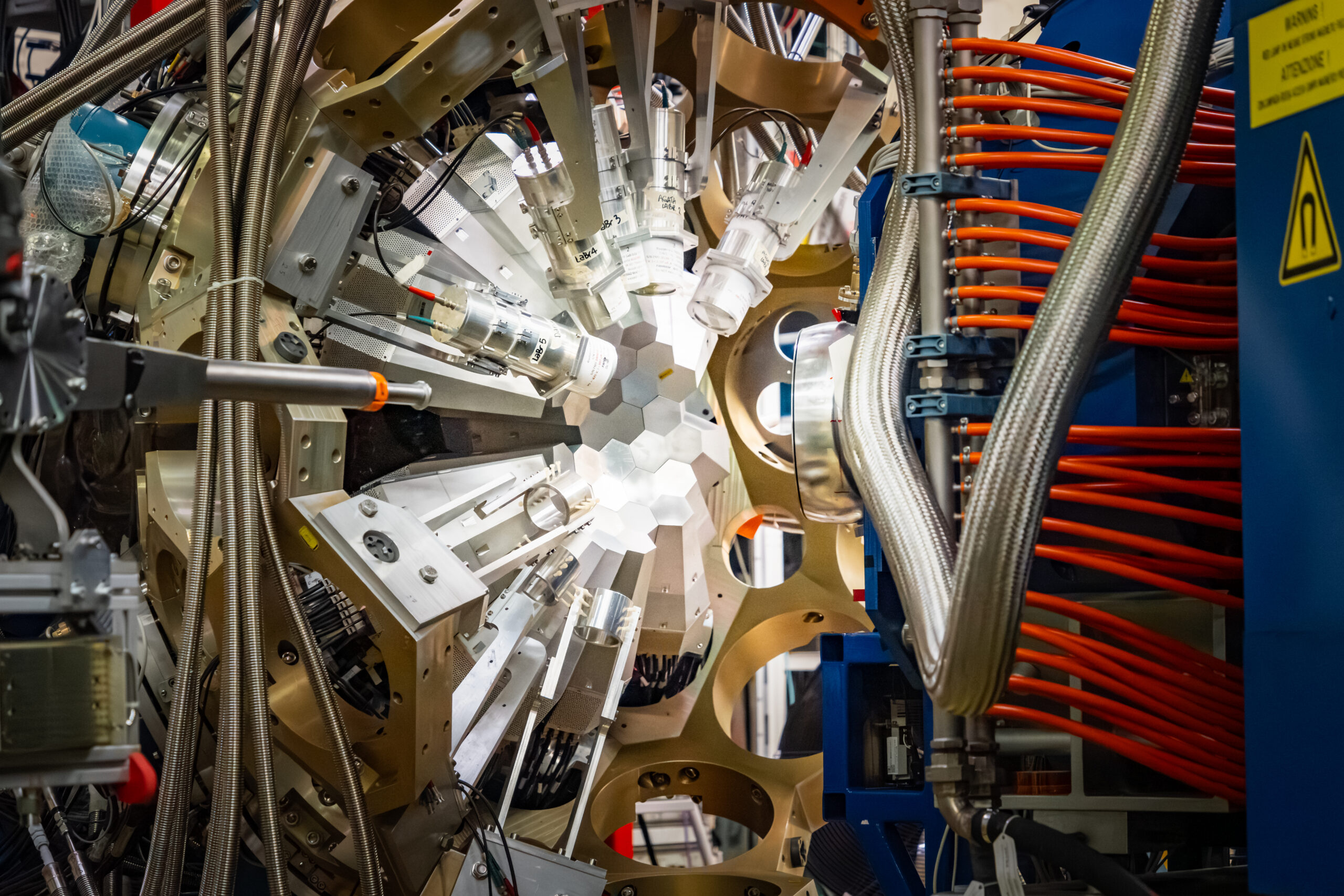
Physics Photowalk 2025: the ten pictures on the Italian podium
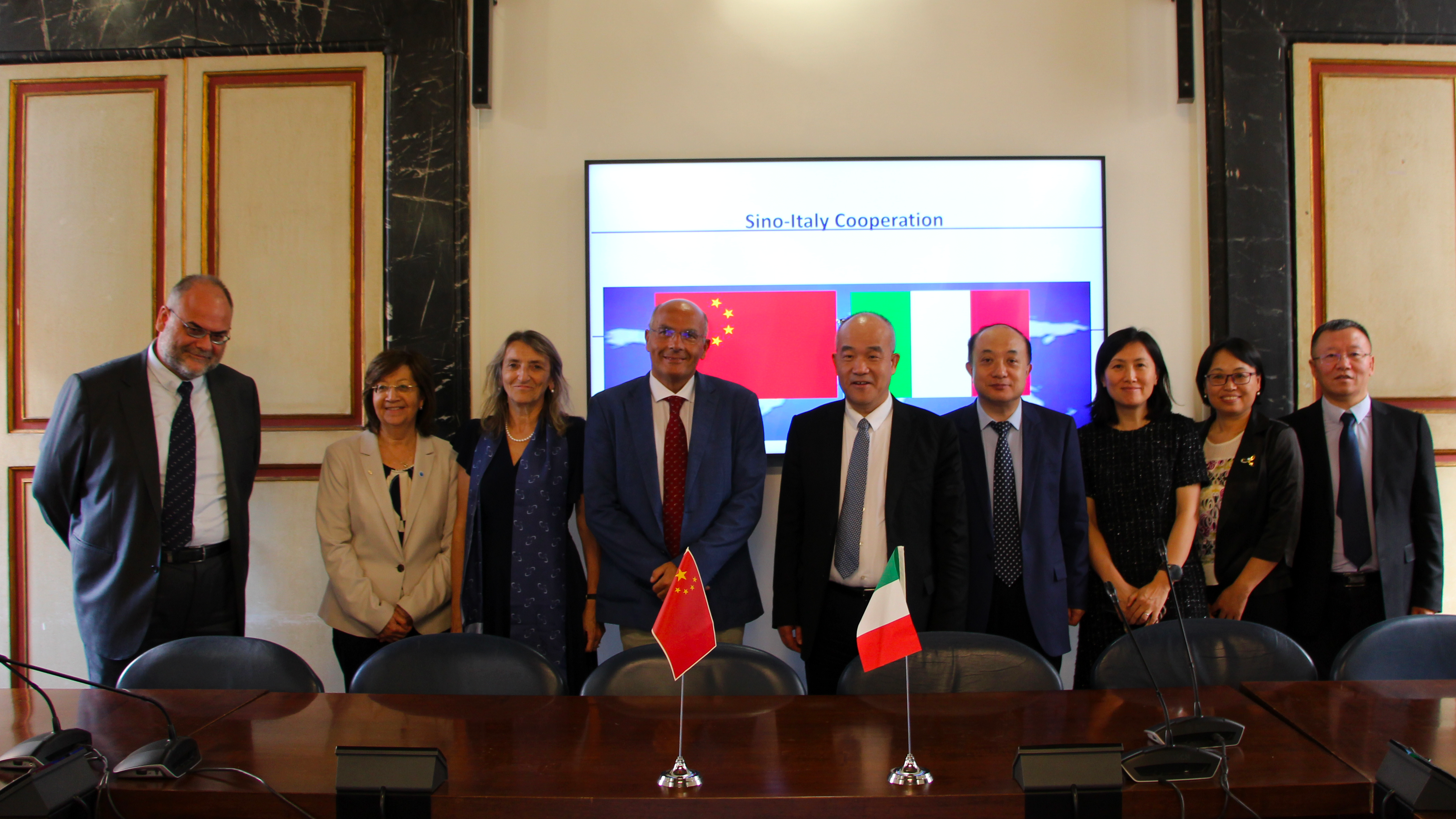
Italy-China: important bilateral meeting between NSFC and INFN
26 September 2025
Read more Italy-China: important bilateral meeting between NSFC and INFN